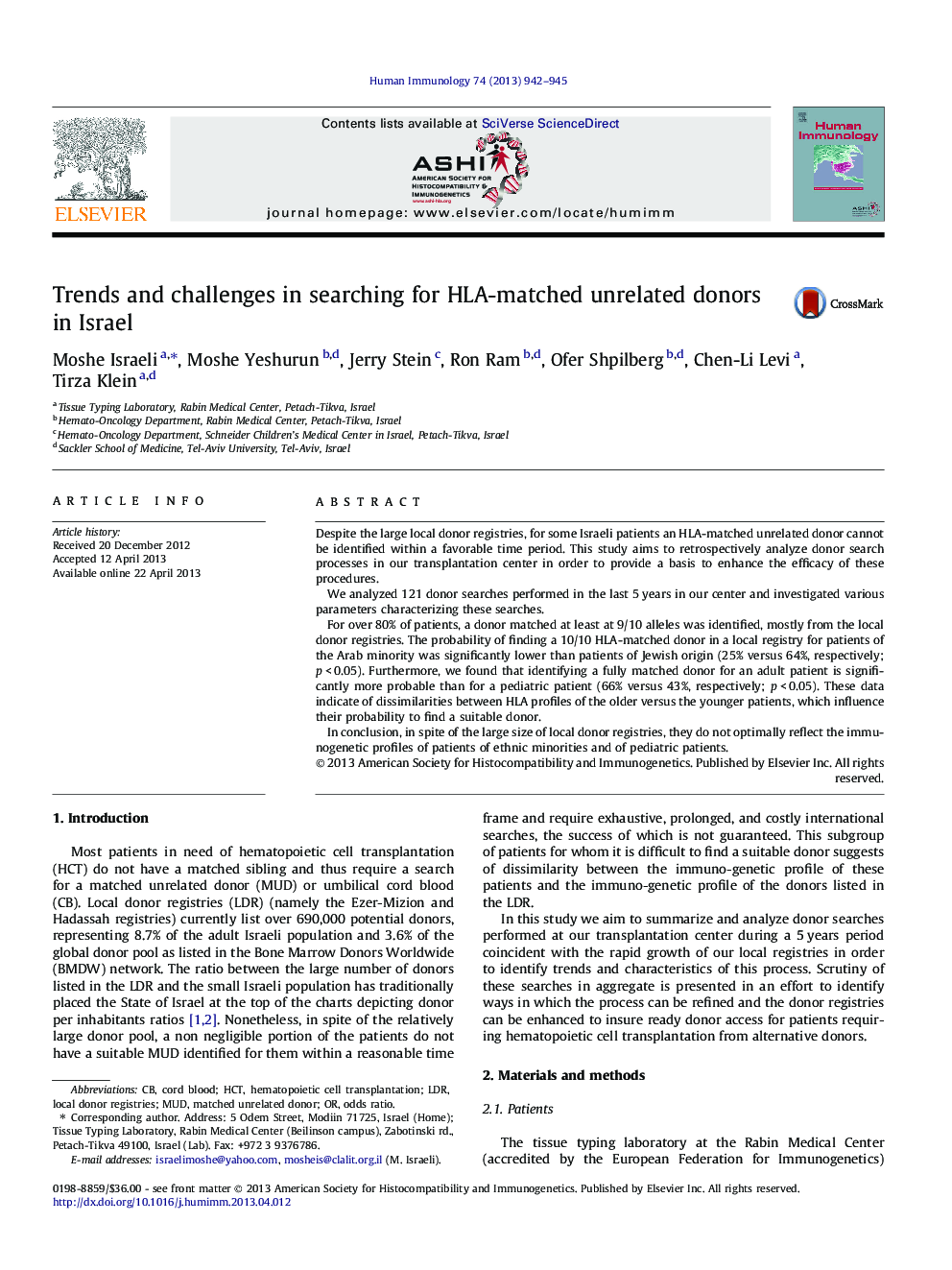| Article ID | Journal | Published Year | Pages | File Type |
|---|---|---|---|---|
| 3350492 | Human Immunology | 2013 | 4 Pages |
Despite the large local donor registries, for some Israeli patients an HLA-matched unrelated donor cannot be identified within a favorable time period. This study aims to retrospectively analyze donor search processes in our transplantation center in order to provide a basis to enhance the efficacy of these procedures.We analyzed 121 donor searches performed in the last 5 years in our center and investigated various parameters characterizing these searches.For over 80% of patients, a donor matched at least at 9/10 alleles was identified, mostly from the local donor registries. The probability of finding a 10/10 HLA-matched donor in a local registry for patients of the Arab minority was significantly lower than patients of Jewish origin (25% versus 64%, respectively; p < 0.05). Furthermore, we found that identifying a fully matched donor for an adult patient is significantly more probable than for a pediatric patient (66% versus 43%, respectively; p < 0.05). These data indicate of dissimilarities between HLA profiles of the older versus the younger patients, which influence their probability to find a suitable donor.In conclusion, in spite of the large size of local donor registries, they do not optimally reflect the immunogenetic profiles of patients of ethnic minorities and of pediatric patients.
